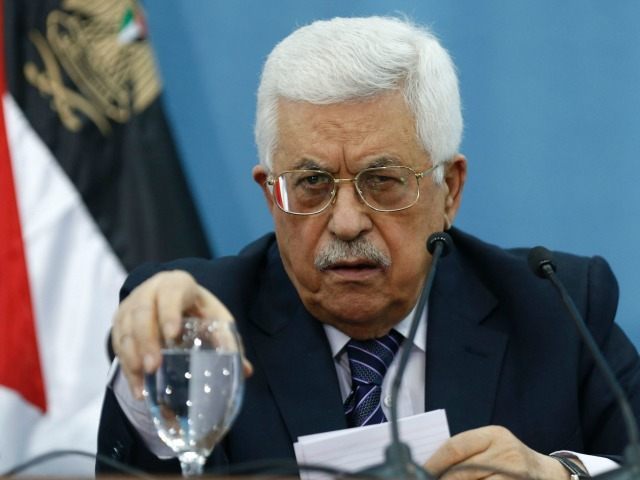TEL AVIV – Palestinian Authority President Mahmoud Abbas rejected the idea of a violent struggle against Israel and stated that a Palestinian state would be established only by diplomatic means, the Jerusalem Post reported.
“We are now engaging in a popular uprising that includes massive protests and demonstrations against the occupation. I am interested in starting direct negotiations with any Israeli figure – be it an Israeli MK, Ashkenazi Jew, or Sephardic Jew,” Abbas said in an interview with Kuwait’s Scoop TV channel.
He added:
In 2000-2005 we engaged in a violent struggle. It ruined the country and we did not achieve anything; to the contrary, international public opinion sided with Israel, which enjoyed worldwide legitimacy to attack Palestinians.
I will not enter a violent struggle. I will not ruin my people and my country. I will fight in the political field to reach my goal. I will never permit violent struggle against Israel and I am determined to prevent anyone from using weapons.
His words fly in the face of continued incitement to violence that the Palestinian Authority and Abbas’ own Fatah party promote. The PA’s official TV channel is guilty of broadcasting countless television programs lauding martyrdom and attacks against Israelis. Recently, Palestinians themselves blamed the government-run media for inciting children to terrorism.
The PA president also addressed a global shift in support for the Palestinian issue:
The world has started changing, and this change is manifested in the European opposition to Israeli settlements and in the labeling of Israeli products from the West Bank. Even the U.S. cannot say it supports the settlements.
I went to Japan, which does not officially recognize Palestine. However, during my visit, I met with the emperor, the honor guard greeted me and the Palestinian anthem was played alongside the Japanese anthem. I was received as a head of state.
Hence, I think that we would not be able to liberate Palestine tomorrow or the day after, but we will be able to do so eventually if the state is built gradually, brick after brick.
Abbas criticized U.S. Secretary of State John Kerry for not being decisive in peace talks. “In my latest meeting with Kerry, I raised three issues: Israeli-Palestinian negotiations, the French offer to hold an international peace conference and the Palestinian plan to turn to the UN Security Council to end Israeli occupation. Kerry told me he would look into the issues, but he has not given me an answer.”
Abbas expressed disappointment with both Russia and the U.S. for failing to work on solving the Israeli-Palestinian conflict, saying, “The Russians and Americans have agreed on a solution to the conflicts in Libya and Syria, and reached a nuclear deal with Iran, so why can’t they agree on a mechanism to resolve the Israeli-Palestinian conflict?”
However, he countered his criticism with warm words directed at Russia: “Russia is a dear friend to us and it fully supports the Palestinian issue.”
“The current international framework formed to resolve the conflict, which is the Quartet, no longer functions since the U.S. has canceled its meeting. I want another mechanism, similar to the P5+1, which will include Arab states such as Jordan, Egypt, and I also want Japan, China, South Africa, France, and Germany,” he said.
In a rare move, Abbas harshly condemned Iran:
“There are no official relations between us and Iran. There is an embassy and an ambassador, but they don’t have direct contacts with us.”
Abbas further stated that Tehran’s offer to compensate the families of Palestinian terrorists only serves to highlight the Islamic Republic’s indirect engagement with the Palestinian Authority:
Today we released a statement saying that we do not know anything about the Iranian funds and we are not responsible for them. I say to Iranians: “You want to engage in Palestine? Then you must do so in collaboration with the Palestinian Authority.” If we have an embassy in Iran, why does it operate indirectly, through the back door?
In the past I visited Iran and met with then-president Mahmoud Ahmadinejad. He told me: “I love the Palestinian people.” I told him: “No, you don’t love them. If you love them, love all Palestinians, not half or a quarter of them.” Iran only loves Hamas and Islamic Jihad.
Iran has provided Palestine neither support nor military aid since the beginning of the 1979 [Iranian] Revolution. It only provides money and weapons to Hamas. They engage in Palestine because they want to strengthen their presence everywhere.

COMMENTS
Please let us know if you're having issues with commenting.